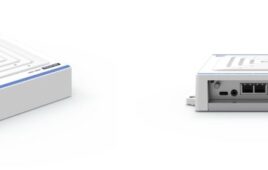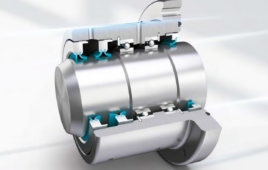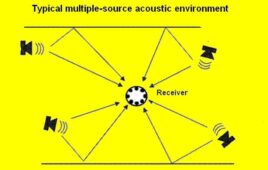Millions of fast intubations are performed every year in military and emergency situations where extreme conditions and severe trauma are common. Key to the success of the intubations is a clear view of a patient‚’s airway.

Endotracheal intubations performed in an out-of-hospital setting carry a greater risk of improper tube placement and more complications. Clinical studies report that in these situations up to 25% of endotracheal tubes (ETT) are misplaced, with 66% of misplaced tubes being inserted into the esophagus.
The GlideScope Ranger, a portable video laryngoscope, is helping anesthesiologists manage these difficult intubations. The GlideScope Ranger can be used quickly and easily in desert to arctic environments, in moving vehicles, and in situations where the patient is in an unusual, such as upright, position.

The Ranger sends a clear picture of the larynx and vocal cords to a display monitor, which gives anesthesiologists visual control of the endotracheal tube in its trajectory toward the airway. With its 50 to 60‚° viewing range, integrated camera, and anti-fogging mechanism, the Ranger facilitates fast, accurate ETT placement even in difficult airways, and helps prevent improper ETT placement and related complications in emergency, out-of-hospital situations. It is constructed of rugged, high-impact plastic and was designed for use in rugged field conditions, including temperatures from -4 to 122‚° F, humidity to 100%, and altitude to 20,000 ft. The integrated, rechargeable lithium polymer battery provides at minimum, 90-minute continuous-use autonomy and allows for approximately 20 intubations per battery cycle. The Ranger does not require a line-of-sight view and takes less force than traditional methods, helping eliminate trauma to patients. It provides a C/L Grade I or II view 99% of the time, even in difficult airways.
The quality of the display is critical. It must have superior brightness, contrast, accurate color transmission, and good uniformity all within a limited space. Using a non-glare material that efficiently transmits light and prevents reflection helps make the viewing area more legible. The material is a cell-cast polymethyl methacrylate (PMMA) with additional coatings to prevent surface scratching, reflection, and smudging. Clarex AR clear material is used for its optical quality, impact resistance, uniform thickness, and high percentage of light transmission.
Astra Products, Inc.
www.astraproducts.com
::Design World::
Filed Under: Medical-device manufacture





Tell Us What You Think!